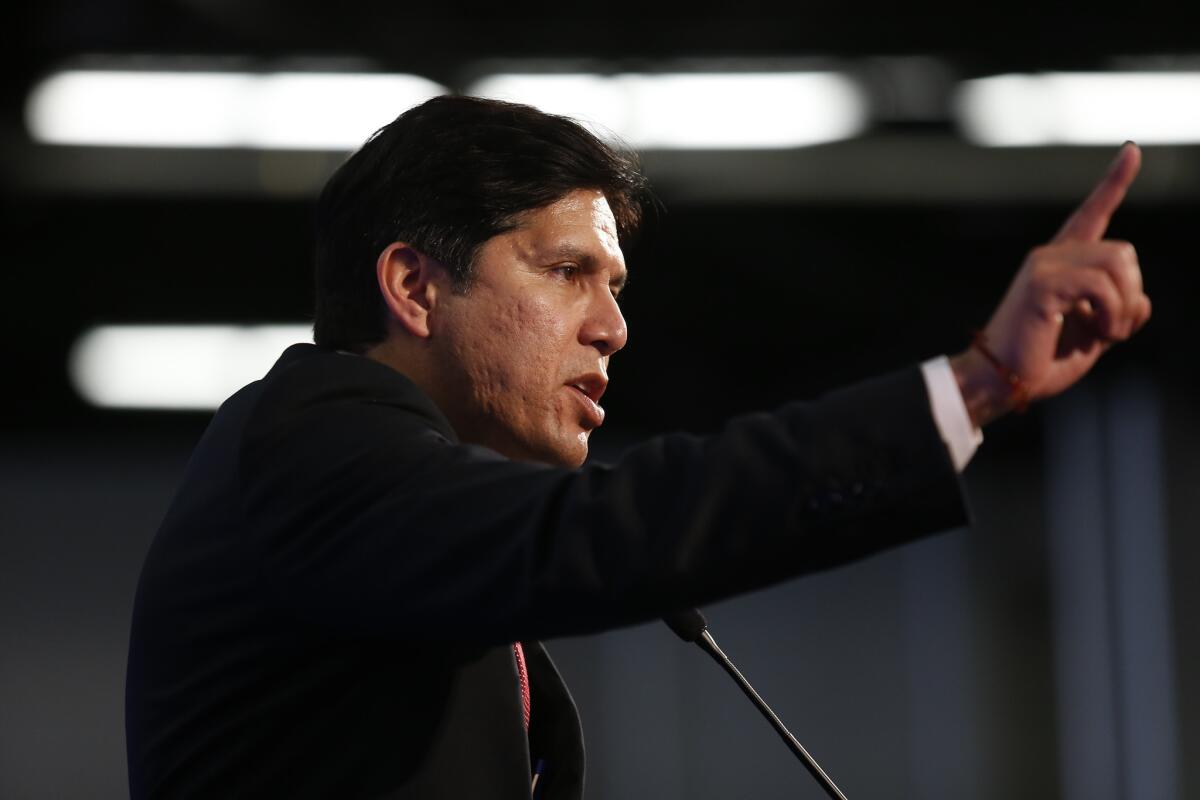California Sen. Kevin De Leon slams ‘cynical’ Supreme Court redistricting case

California Senate leader Kevin De Leon speaks during the state
- Share via
Reporting from Sacramento — State Senate leader Kevin De Leon (D-Los Angeles) issued a vehement defense of the principle of “one person, one vote” Friday, four days after the U.S. Supreme Court announced that it would consider a case that could upend the way voting districts are drawn if that longstanding calculus is redefined.
De Leon, in a video statement taped in English and Spanish, said he was “deeply concerned” by the court’s decision to hear the case, which hinges on whether districts should be based on total population, as they are now, or on the number of eligible voters.
The question could have major implications for states such as California, where certain areas have large concentrations of noncitizen residents, and for De Leon’s district in particular.
Before the high court ruled in 1964 that state legislative districts must be roughly equal in population size, “political districts across the nation were arbitrary and imbalanced -- and millions were underrepresented,” De Leon said.
“Los Angeles County and its 6 million people, for example, had the equivalent voting power in our state Senate as a rural district with barely 14,000 people.”
If the court rules next year that the political boundaries must be based on eligible voters, parts of Los Angeles -- especially the Eastside slice represented by De Leon -- would be affected due to the area’s high proportion of noncitizen residents.
De Leon’s district would likely need to be combined with other, nearby parts of the city to make up a full district.
De Leon called the court case, which challenges state and local districts in Texas, a “cynical and transparent effort to turn back the clock on decades of legal precedent and return an unjust, unequal system of redistricting” that would disadvantage urban dwellers, as well as Latino and Asian residents.
“Make no mistake: We Californians believe that all people -- not just adult registered voters -- deserve equal protection under our laws and fundamental political representation,” he said.
Follow @melmason on Twitter for more on California government and politics.
More to Read
Sign up for Essential California
The most important California stories and recommendations in your inbox every morning.
You may occasionally receive promotional content from the Los Angeles Times.











